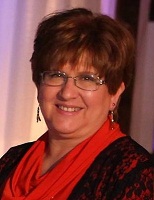By Toby Klein Greenwald
 To be more exact, it's a tale of giving an old stove away.
To be more exact, it's a tale of giving an old stove away.
We are lucky to live in a small town in Israel filled with kindness. We have a non-profit that arranges for interest-free loans, a "store" that sells donated, gently used clothing for a few dollars, a similar "shop" whose merchandise is donated house wares, a kitchen that distributes food packages to the needy, a center for bridal dresses at symbolic loan prices, and the branch of an organization (Yad Sarah) that loans equipment for medical needs and for newborns.
The town has people of all ages who volunteer to help the elderly or infirm, who raise money for charity, who work as volunteer tutors, who gives rides to hospitals or elsewhere and who host strangers who need a good meal.
In addition, the local community e-mail list has achieved a somewhat entertaining notoriety, not only for its sharing of stories and humor (and hot political debates), but for its offers to sell or give away unneeded items (ranging from bookcases to DVD's to chicken necks) and, more important, to let neighbors know about the needs of others.
An elderly woman recently wrote to the list about five local high school boys who swooped in one day, did her cleaning, painted and repaired furniture, and planted window boxes for her. "They came into my home and made it my castle…I don't remember all their names," she wrote. "To the parents: you have much to be proud of in your children."
Naturally, the list is especially active in the springtime, when many of those of the Jewish faith thoroughly clean their homes before Passover, and give things away that are no longer needed.
Which brings me to my story.
Our oven died a final death in the midst of winter and, since my daughters are the main bakers in our family, and most of them have their own homes in which to bake now, we decided to make do with the stovetop and buy a new stove before Passover.
What to do with the old one? Simple enough – offer it for free on the e-mail list, explaining that only the stove worked.
I got two replies. One from a man, I'll call David, who picks up old electrical appliances, sells the parts and recycles the rest. A few hours later I got a request from a man who lives alone, who I'll call Solomon. I mentioned it to David when he called to double check about when to pick up the stove. He said, "Then give it to him. He needs it more." But I had David stop by to take away an old broken TV. He noticed some sheet music in the den and asked who played an instrument and proceeded to tell me that he is a cantor and musician and does this selling-recycling on the side for extra money. Nevertheless, David insisted that if Solomon needed the stove, I should let him have it.
So I wrote to Solomon, asking if he was also selling it for parts or needed it to cook on, explaining that if it was the latter, he should take it.
Solomon wrote back, "No, let him have it. I’ve a one-burner hotplate I can manage with. One's livelihood is the most important, and I never cook much anyway – thanks!"
At the time of this writing we were less than a week before Passover and there was almost a reverse bidding war taking place between two men, each insisting that the other need the oven more.
The story that comes to mind is an ancient legend of two brothers, one who had a large family and the other who had none. Each would sneak over a hilltop at night to anonymously bring sheaves of wheat to the other. One thought, "I have a family. He has no one. He needs it more than I." The other thought, "I have no family. He has many mouths to feed. He needs it more than I." One night they met on the hilltop, each saw what the other was doing, and they embraced. The Hebrew sages say that this was the spot destined to build the Temple in Jerusalem, where people would gather in unconditional love.
Please share your own stories of unconditional love with us! We know it is everywhere. Post in the comments below or write to me
